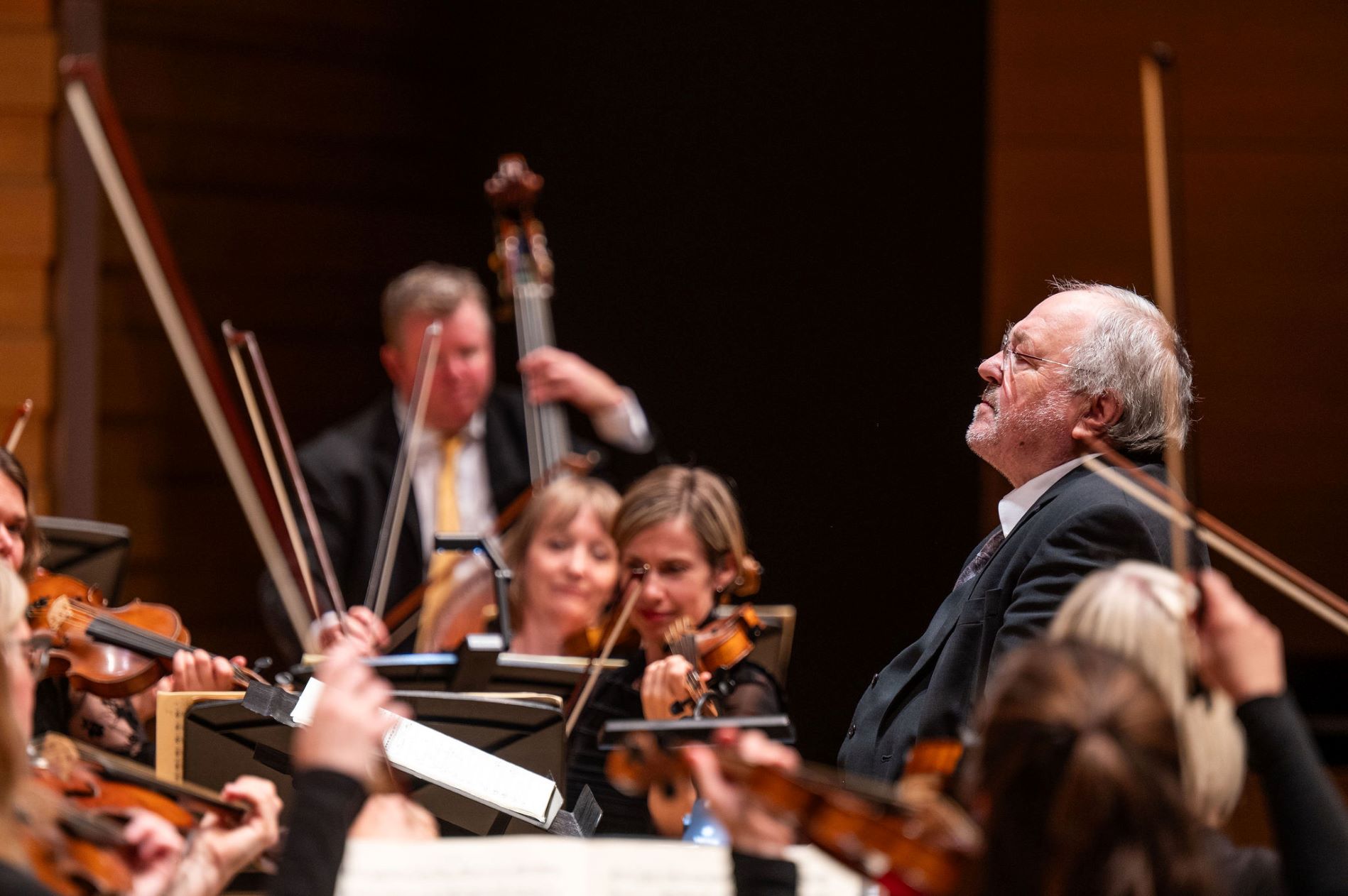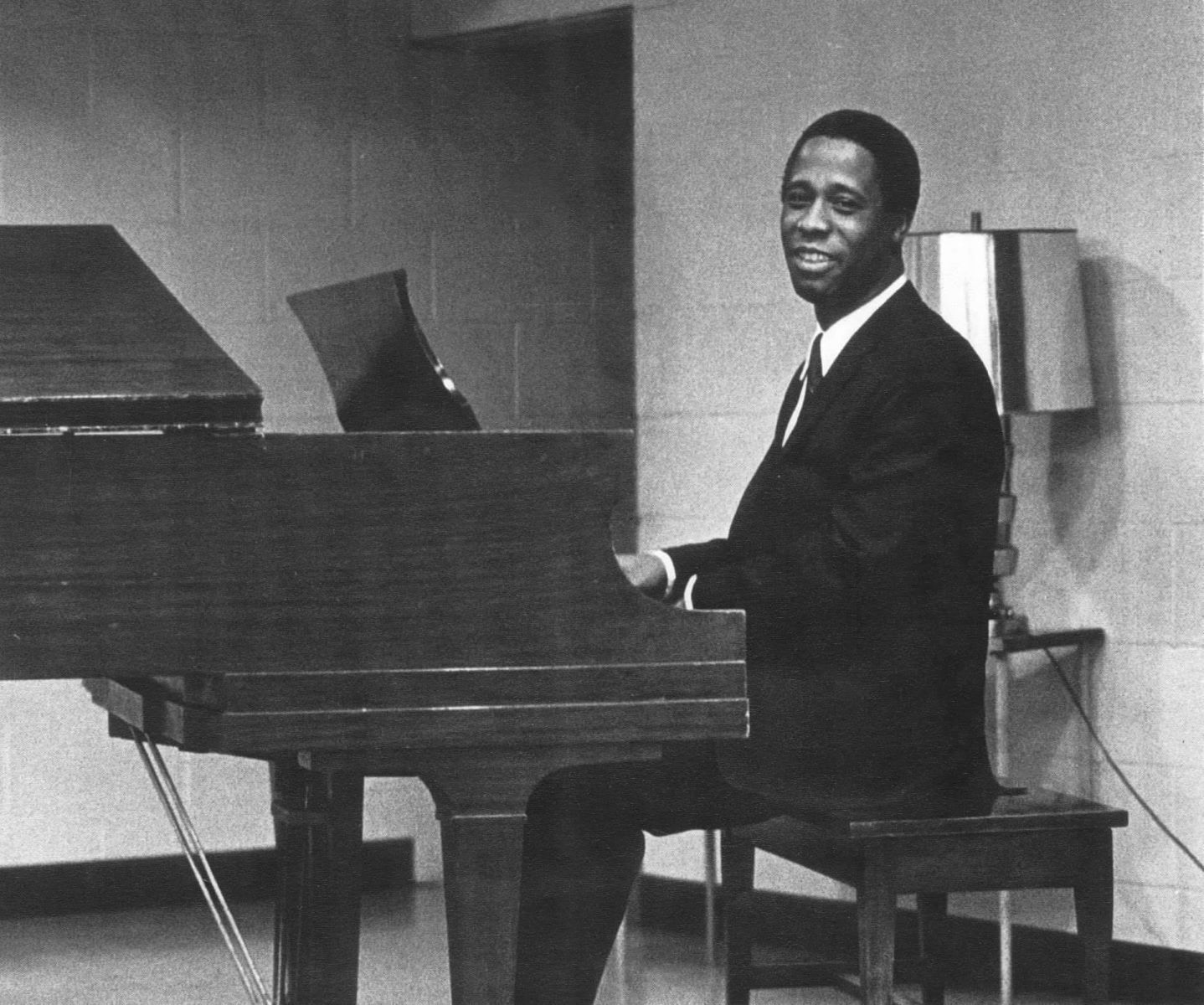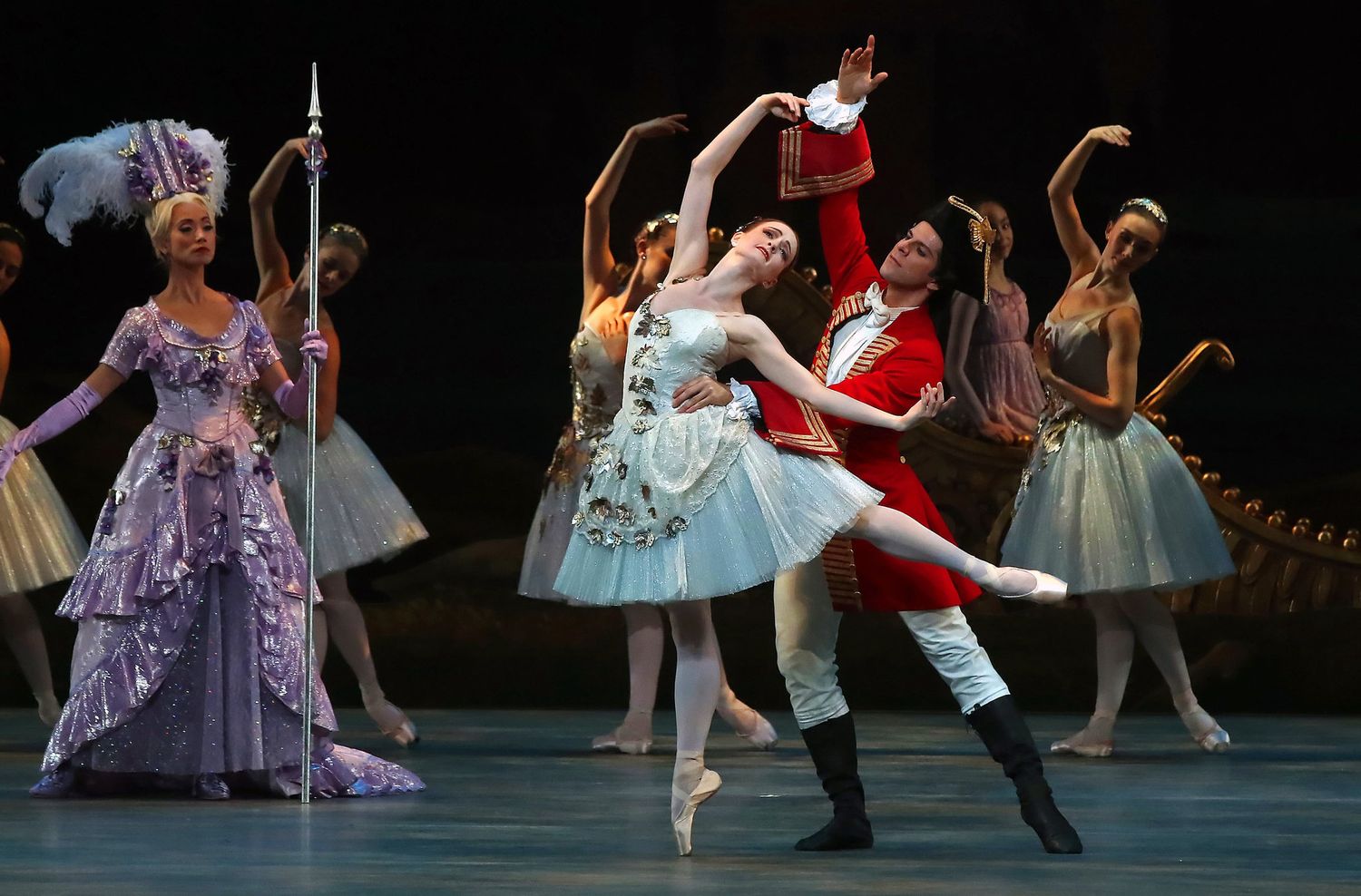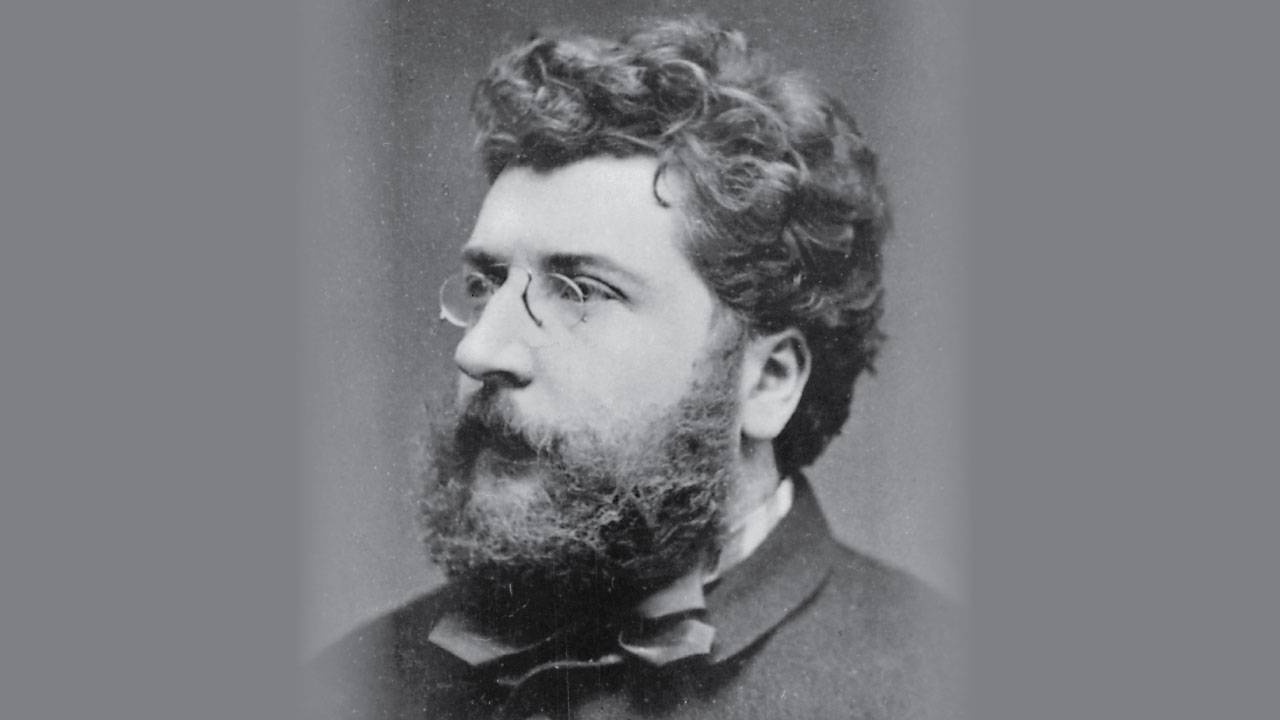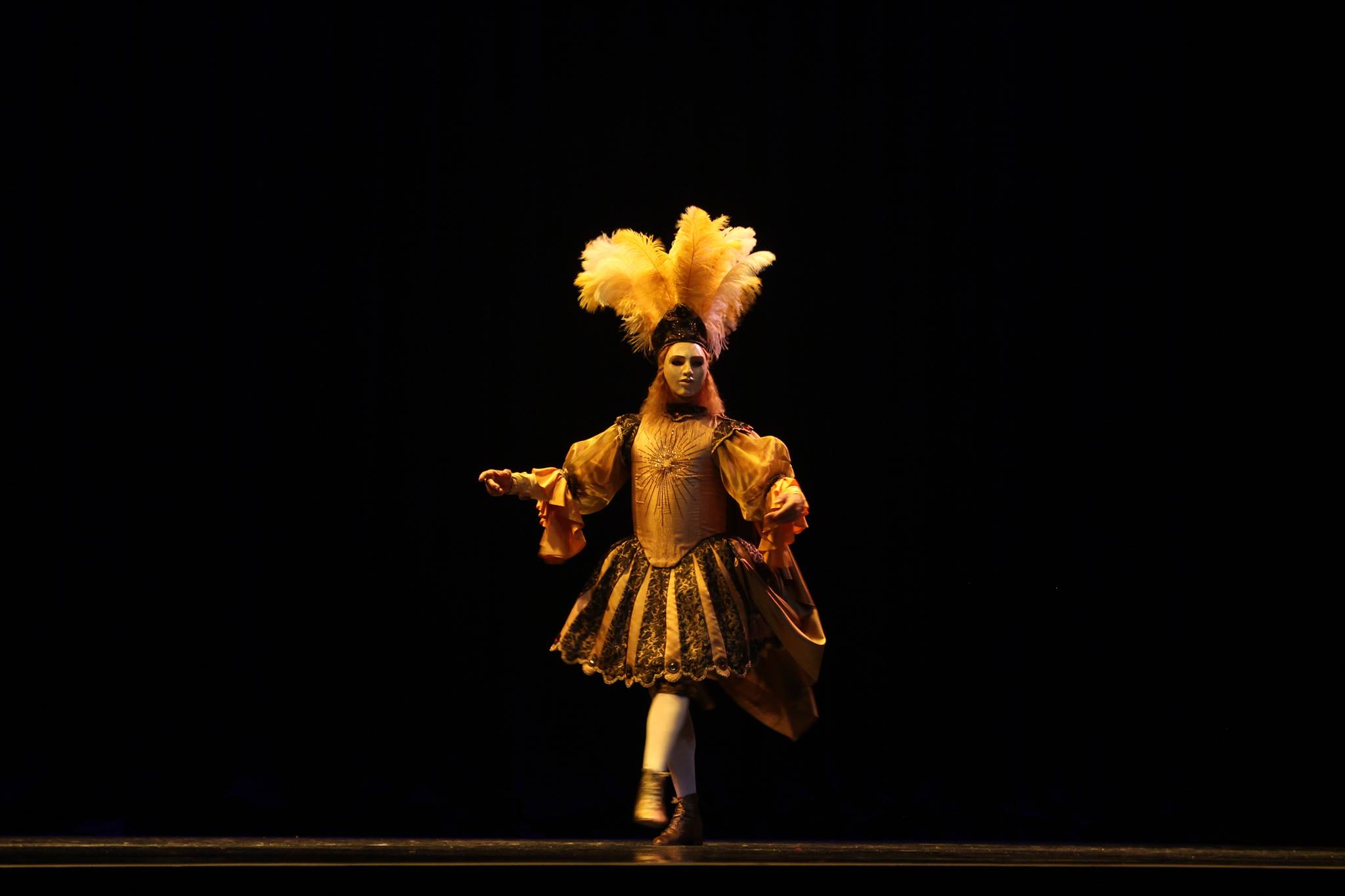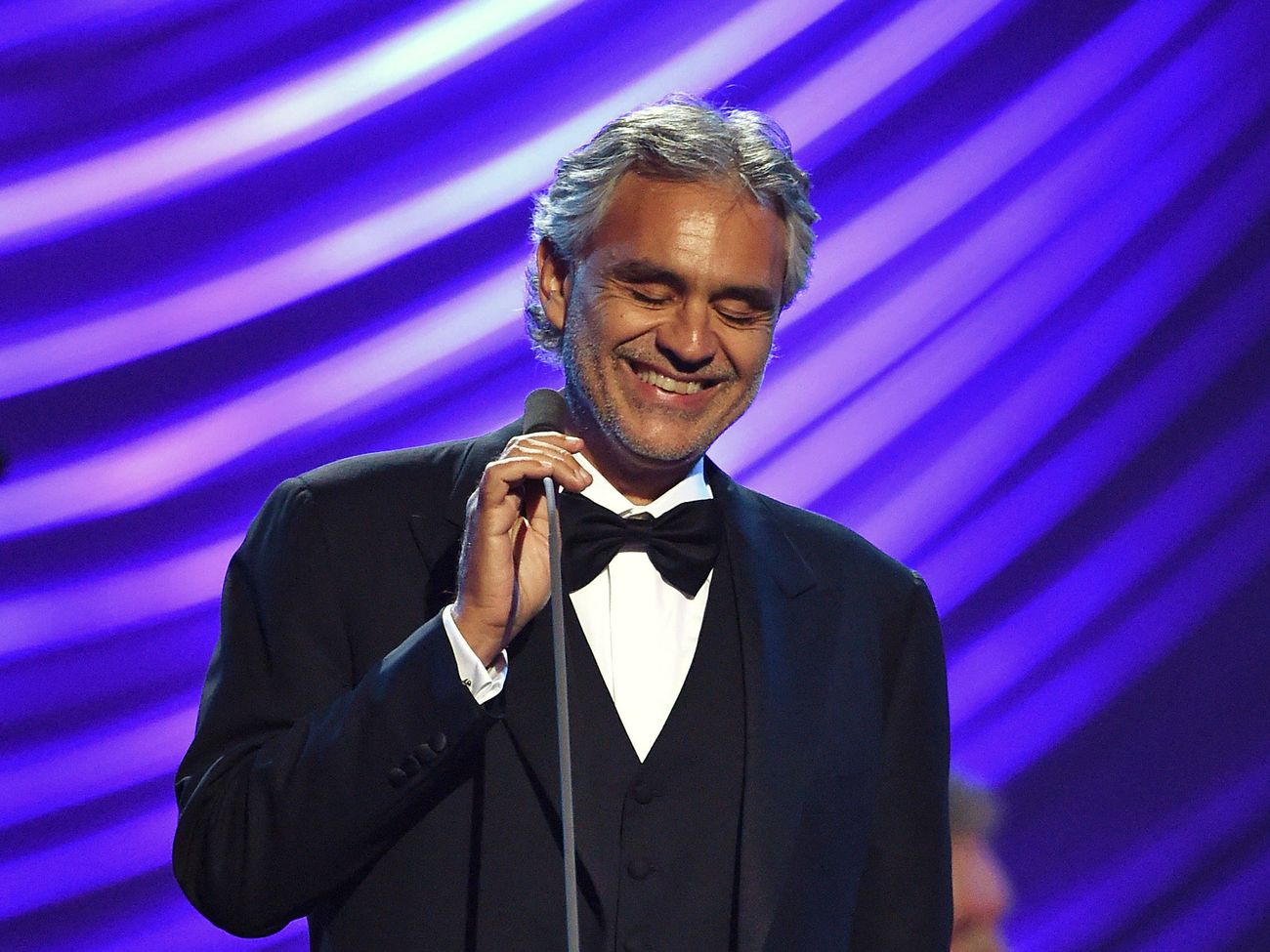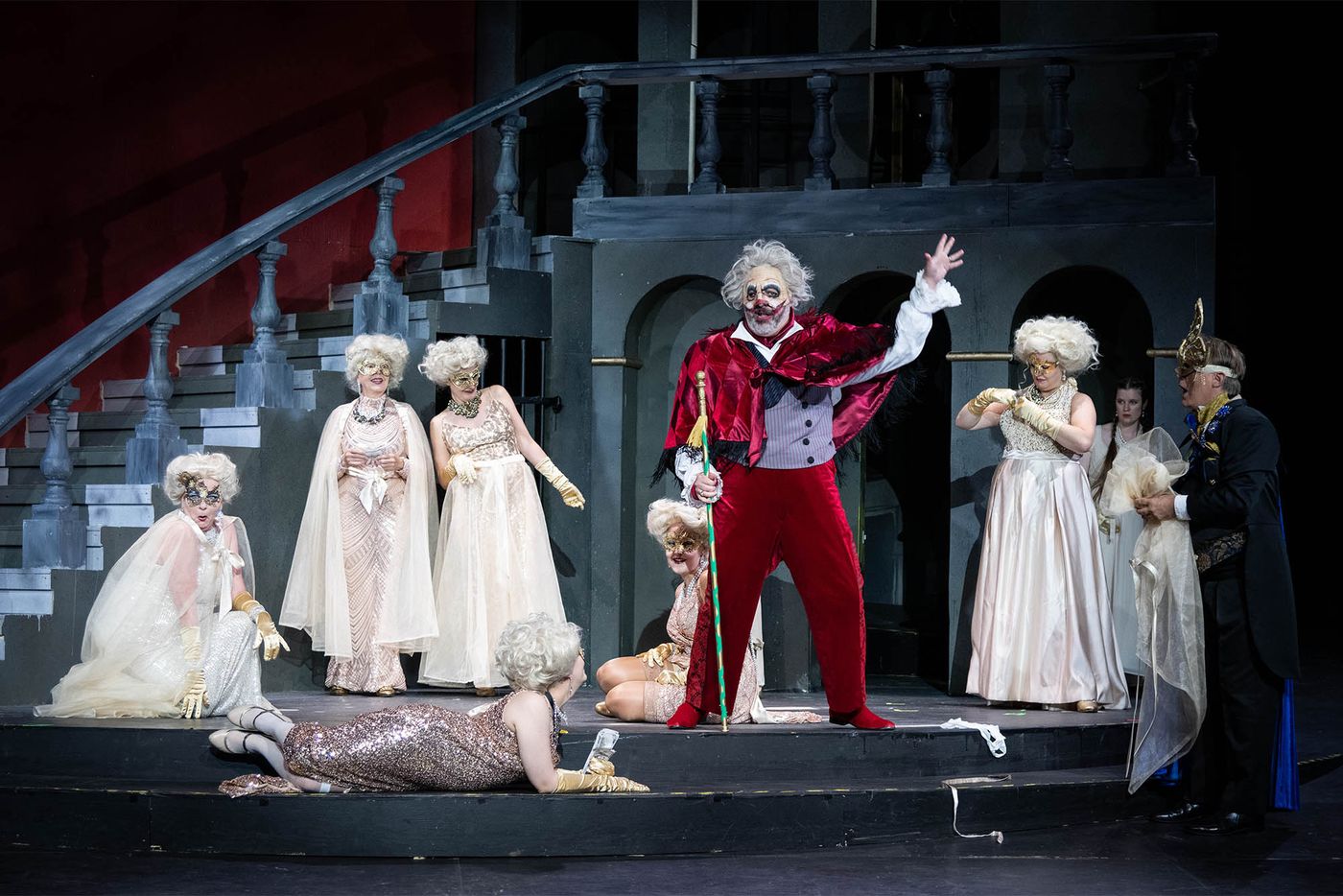Home>Events & Info>Opera>Who Wrote The Opera Peter Grimes
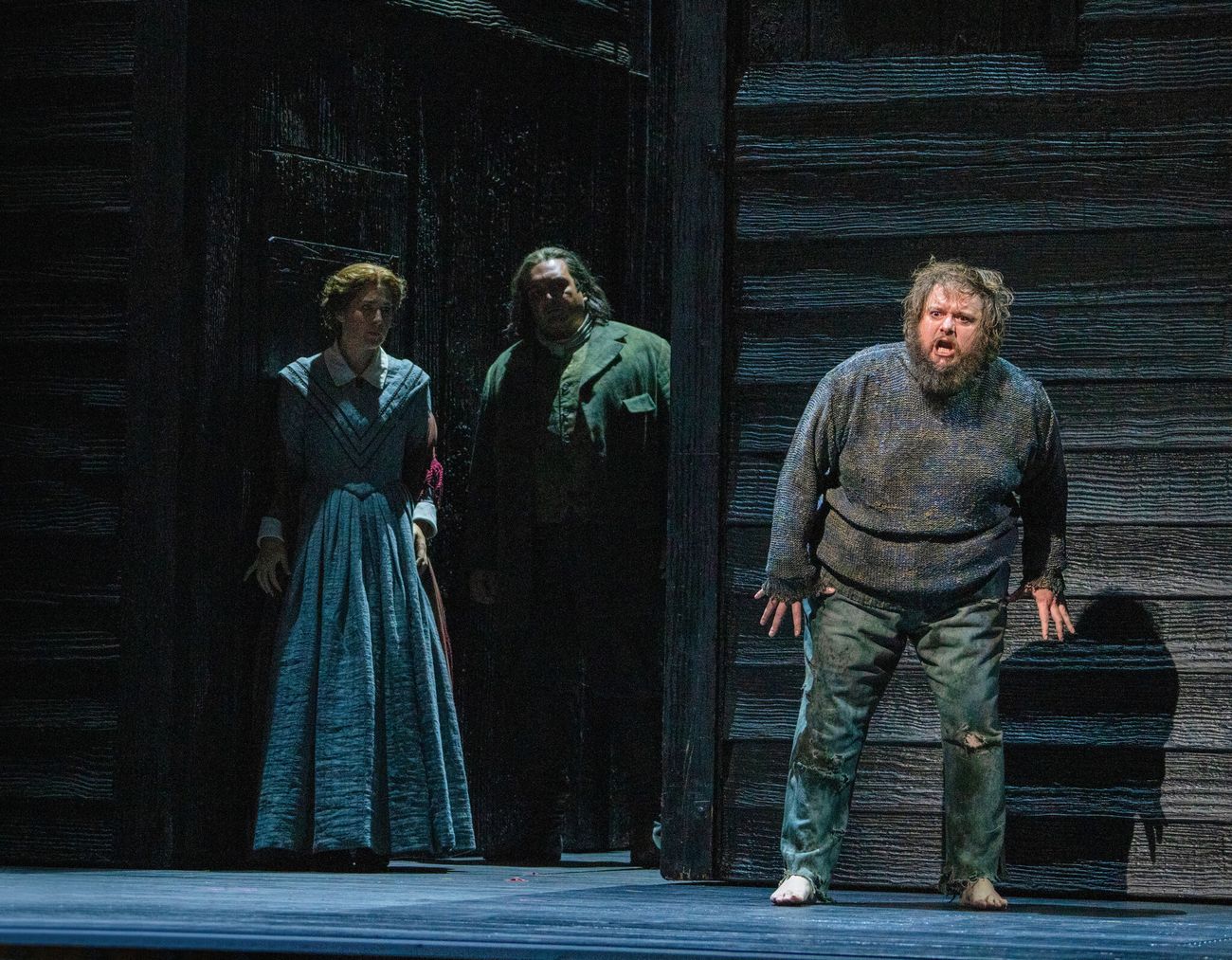

Opera
Who Wrote The Opera Peter Grimes
Modified: January 22, 2024
Discover the brilliant mind behind the iconic opera "Peter Grimes". Unravel the mystery of the genius composer who crafted this timeless masterpiece.
(Many of the links in this article redirect to a specific reviewed product. Your purchase of these products through affiliate links helps to generate commission for AudioLover.com, at no extra cost. Learn more)
Table of Contents
Introduction
When it comes to the world of opera, one of the most iconic and beloved works is undoubtedly “Peter Grimes.” This critically acclaimed masterpiece, composed by Benjamin Britten, has captivated audiences since its premiere in 1945. However, when discussing this renowned opera, an intriguing question arises: Who wrote the opera Peter Grimes?
While it is widely known that Benjamin Britten is the composer of Peter Grimes, the true authorship of the opera extends beyond the music itself. The development of the libretto, the storyline, and the characters involved a collaborative effort between Britten and his partner, Peter Pears, as well as Montagu Slater, who provided the words for the libretto. The process of creating an opera is often a collective endeavor, with multiple contributors bringing their creative vision and skills to the table.
In this article, we will explore the fascinating journey behind the creation of Peter Grimes and shed light on the various individuals who played a significant role in shaping this outstanding opera. We will delve into the collaborative process that took place, analyze the contributions of each artist involved, and examine the speculation and analysis around the mystery of authorship. By the end, we hope to provide a comprehensive understanding of the opera’s origins and shed light on the question of who truly wrote the opera Peter Grimes.
Benjamin Britten and his Operas
Before delving into the creation of Peter Grimes, it is essential to understand the background of Benjamin Britten, the renowned composer behind this opera. Born in 1913 in Lowestoft, England, Britten showed immense talent in music from an early age. He studied at the Royal College of Music in London and went on to become one of the most influential British composers of the 20th century.
Britten’s body of work includes a vast array of operas, choral music, orchestral pieces, and chamber music. Known for his distinctive style and innovative musical techniques, he pushed the boundaries of traditional opera and tackled a wide range of themes and subjects in his compositions.
Throughout his career, Britten exhibited a keen interest in exploring the complexities of human emotions and the struggles of society. His operas often addressed poignant and controversial topics, making them captivating and thought-provoking for audiences.
Some of Britten’s notable operas include “Billy Budd,” “The Turn of the Screw,” “A Midsummer Night’s Dream,” and, of course, “Peter Grimes.” These works showcase his profound understanding of vocal writing, intricate harmonies, and his ability to create compelling narratives through music.
Britten’s operas are characterized by their ability to engage the audience on both an emotional and intellectual level. His work demonstrates a profound understanding of the human condition, portraying complex characters and exploring themes of isolation, identity, oppression, and social issues.
With his unique musical language, Britten managed to create operas that resonated with audiences worldwide. His contributions to the realm of opera have solidified him as one of the greatest composers of the 20th century.
Now that we have a glimpse into Benjamin Britten’s artistic background, we can turn our attention to the specific opera that has garnered so much acclaim and prompted the question of its authorship: Peter Grimes.
The Creation of Peter Grimes
The genesis of Peter Grimes can be traced back to the early 1940s when Benjamin Britten became inspired by the poem “The Borough” by George Crabbe. The vivid imagery and gripping narrative of Crabbe’s poem struck a chord with Britten, and he envisioned translating it into an opera.
Collaborating with his partner, the tenor Peter Pears, Britten set out to transform Crabbe’s poem into a libretto. However, they soon realized that they would need the expertise of a skilled writer to help shape the words and dialogue of the opera. Enter Montagu Slater, a lyricist and writer, who was brought on board to work on the libretto for Peter Grimes.
As the artistic collaborators constantly sought ways to express the emotional intensity of Crabbe’s story, the creation process of Peter Grimes involved meticulous craftsmanship. Britten, Pears, and Slater worked closely together, discussing scenes, characters, and the overall structure of the opera.
During this collaborative phase, the trio aimed to capture the essence of Crabbe’s poem while adding their own artistic interpretations. The result was a compelling libretto that delved into the dark themes of isolation, societal judgment, and the human struggle for redemption.
Britten’s music played an instrumental role in bringing the words and emotions of the libretto to life. His use of dissonant harmonies, intricate orchestration, and soaring melodies beautifully heightened the dramatic tension and evoked the turbulent inner world of Peter Grimes.
Once the libretto and the music were meticulously crafted, Peter Grimes premiered on June 7, 1945, at Sadler’s Wells Theatre in London. The opera was an instant success, captivating audiences and garnering critical acclaim for its poignant storyline and innovative musical language.
The creation of Peter Grimes marked a significant milestone in Britten’s career. It showcased his ability to transform a powerful poem into an opera that resonated deeply with people, leaving a lasting impact on the world of opera and establishing Britten as a pioneering composer.
The collaborative efforts of Benjamin Britten, Peter Pears, and Montagu Slater brought forth a masterpiece that continues to be celebrated and performed on operatic stages worldwide. However, while we may attribute the composition of the music to Britten, the question of who truly wrote the opera Peter Grimes remains open for further exploration and analysis.
Libretto Development
In the creation of an opera, the libretto, or the text that accompanies the music, plays a crucial role in shaping the storyline and characters. For Peter Grimes, the development of the libretto was a collaborative effort between Benjamin Britten, Peter Pears, and Montagu Slater.
Montagu Slater, an accomplished writer and lyricist, was brought on board to collaborate with Britten and Pears in transforming George Crabbe’s poem “The Borough” into a libretto. Slater’s skillful use of language and his ability to capture the essence of the characters and their motivations proved invaluable in shaping the script.
The libretto for Peter Grimes went through several revisions as the collaborative team sought to achieve a cohesive and emotionally impactful narrative. They worked together to develop the dialogue, refine the characterizations, and ensure that the words seamlessly intertwined with Britten’s music.
One of the challenges they faced was finding a balance between the individual voices of the characters and the larger themes of the opera. Each character in Peter Grimes represents a distinct aspect of society and human nature, and the libretto needed to reflect this complexity.
The libretto development process involved intense discussions and exchanges of ideas between Britten, Pears, and Slater. They explored the emotional arcs of the characters, examined their relationships, and carefully crafted the text to convey the underlying tensions and conflicts within the story.
Through their collaboration, they managed to create a libretto that captured the raw emotions, the societal pressures, and the psychological depths explored in Crabbe’s poem. Slater’s words provided a powerful foundation for the music to unfold, allowing Britten to infuse each scene with his distinctive compositional style.
It is important to recognize that while Montagu Slater contributed significantly to the libretto, the process of creating an opera involves a dynamic interaction between composer, librettist, and performers. The libretto serves as the roadmap for the music, providing the structure, themes, and characters that will come to life on stage.
The libretto development for Peter Grimes exemplifies a successful collaboration between Benjamin Britten, Peter Pears, and Montagu Slater. By merging their creative talents and utilizing their respective expertise, they created a libretto that would ultimately become the foundation for one of the most powerful operas of the 20th century.
The Mystery of Authorship
When examining the authorship of an opera, it is essential to consider the various contributions that go into its creation. In the case of Peter Grimes, the question of who truly wrote the opera becomes complex, as it involves the collaborative efforts of Benjamin Britten, Peter Pears, and Montagu Slater.
While Benjamin Britten is credited as the composer of Peter Grimes, it is crucial to acknowledge the significant role played by Peter Pears and Montagu Slater in the libretto development. Pears, being Britten’s life partner and a renowned tenor, brought his deep understanding of the characters and their emotions to the creative process. His insights and artistic input undoubtedly shaped the direction of the opera.
Montagu Slater, on the other hand, contributed his lyrical expertise to the libretto, crafting the words that would give voice to the characters and drive the narrative. His mastery of language and his ability to capture the essence of Crabbe’s poem provided the foundation for the opera’s dramatic impact.
Considering the intricate collaboration that took place between Britten, Pears, and Slater, it becomes evident that the authorship of Peter Grimes extends beyond one individual. Each artist brought their unique talents and insights to the project, contributing to its overall artistic vision.
The question of authorship often arises in the realm of opera, where the collaborative nature of the art form blurs the lines of individual contribution. While the music is undoubtedly the creation of Benjamin Britten, the libretto and the interpretation of the characters were influenced by the collective efforts of all involved.
Authorship in opera encompasses not just the composer but also those who contribute to the development of the libretto, the staging, and the interpretation of the work. It is a collaborative endeavor that relies on the collective vision and talent of the artists involved.
Although the mystery of authorship in Peter Grimes remains open to interpretation, it is a testament to the collaborative nature of opera and the power of bringing together diverse talents to create a masterwork.
While individual contributions may vary, the collective effort of Britten, Pears, and Slater resulted in an opera that continues to resonate with audiences around the world, showcasing the transformative power that can be achieved through collaboration and shared artistic vision.
The Collaborative Process
The creation of an opera is often a collaborative process that involves the combined efforts of composers, librettists, performers, and directors. In the case of Peter Grimes, the collaborative nature of the opera’s development played a crucial role in its success.
Benjamin Britten, Peter Pears, and Montagu Slater embarked on a journey together, weaving their talents and perspectives to bring George Crabbe’s poem to life on the operatic stage. Their collaboration brought forth a compelling narrative and a richly layered musical composition.
The collaborative process began with intense discussions and brainstorming sessions. The trio examined the thematic elements of the poem, analyzed the emotional depths of the characters, and worked to transform the words into a libretto that would resonate with audiences.
As the three artists exchanged ideas, they constantly pushed each other to explore new creative horizons. Britten’s music, Pears’ interpretation of the characters, and Slater’s mastery of language combined to create a synergy that breathed life into Peter Grimes.
Throughout the collaborative process, each artist had a distinct role to play. Britten, as the composer, translated the emotions and essence of the libretto into musical form, utilizing his expertise in orchestration and vocal writing to evoke the desired emotions.
Pears, with his in-depth understanding of the characters, brought them to life through his exceptional vocal interpretation. His portrayal of Peter Grimes, the opera’s tormented protagonist, was particularly influential in shaping the overall tone and impact of the work.
Slater’s contribution as a writer and lyricist cannot be overstated. He skillfully crafted the words and dialogue that captured the essence of Crabbe’s poem, providing a solid foundation for Britten’s music and Pears’ interpretation.
The collaborative process also extended to the stage production. Directors, designers, and performers worked together to translate the vision of the creators into a fully realized opera. Their collective efforts in staging, choreography, and set design added further depth and dimension to the performance.
The collaborative process behind Peter Grimes showcases the power of artistic synergy. By pooling their talents, knowledge, and perspectives, Britten, Pears, and Slater achieved a level of artistic excellence that they may not have achieved individually.
It is worth noting that the collaborative nature of opera extends beyond the individuals directly involved in its creation. Conductors, musicians, singers, and production teams all contribute their expertise and interpretations, breathing life into the work and adding their creative input.
The success of Peter Grimes stands as a testament to the transformative power of collaboration. It exemplifies how a collective effort, fueled by shared artistic vision and creative exchange, can create a lasting masterpiece that resonates with audiences for generations to come.
Analysis and Speculation
As we delve into the mystery of authorship in Peter Grimes, it is essential to examine the various elements and analyze the contributions of Benjamin Britten, Peter Pears, and Montagu Slater. While we acknowledge the collaborative nature of the opera’s creation, speculation has arisen about the extent of each individual’s involvement.
It is clear that Benjamin Britten’s role as the composer of the music is undisputed. His unique musical language and innovative techniques are evident throughout the opera, providing a powerful emotional backdrop to the story. Britten’s expertise in vocal writing and orchestration is undeniably present in the composition of Peter Grimes.
Peter Pears, Britten’s life partner and a renowned tenor, played a significant role in shaping the opera’s characterizations. Through his interpretation of the protagonist, Peter Grimes, Pears brought depth and nuance to the role. His intimate knowledge of the character’s emotional journey undoubtedly had a profound impact on the opera’s overall direction.
Montagu Slater’s lyrical expertise and skillful adaptation of George Crabbe’s poem to the libretto played a crucial role in shaping the words and dialogue of Peter Grimes. Slater’s contributions added layers of meaning and emotion to the opera, providing a solid groundwork for Britten’s music and Pears’ performance.
While the collaborative efforts of Britten, Pears, and Slater are widely acknowledged, analysis and speculation arise when considering the extent to which each individual contributed to the overall artistic vision. Some argue that Britten’s genius as a composer is the driving force behind the opera, giving him the predominant authorship status.
However, it is also important to recognize the profound influence of the libretto on the overall impact of the opera. The power of the words, the intricacy of the characters’ emotions, and the underlying themes were all central to the success of Peter Grimes. In this regard, the partnership between Pears and Slater in bringing the libretto to life cannot be underestimated.
Ultimately, the true authorship of Peter Grimes lies in the collective efforts of these three artists. Their collaboration, their creative exchanges, and their shared artistic vision culminated in a work that defied expectations and resonated with audiences.
While speculation may stir questions of individual authorship, it is important to appreciate the collaborative nature of opera as an art form. The fusion of music, words, interpretation, and performance creates a tapestry of artistic expression that transcends the boundaries of any one individual’s contribution.
The legacy of Peter Grimes serves as a testament to the power of collaboration, where the sum becomes greater than its parts. It stands as a masterpiece that continues to captivate audiences, inviting us to embrace the rich complexity and beauty that arises when artistic talents intertwine.
Conclusion
The question of who wrote the opera Peter Grimes is a complex one, rooted in the collaborative efforts of Benjamin Britten, Peter Pears, and Montagu Slater. While Britten is undoubtedly the composer of the music, the contributions of Pears and Slater in the libretto development cannot be overlooked.
Throughout the creation process, this remarkable trio worked together to translate George Crabbe’s poem into a libretto that captured the emotional depth and societal themes of Peter Grimes. They brought their unique talents and perspectives, resulting in a powerful fusion of music and words.
The mystery of authorship in Peter Grimes reflects the collaborative nature of opera as an art form. It highlights the interdependence of composers, librettists, performers, and directors in bringing a work to life. Each individual’s expertise and interpretations shape the final product, blurring the lines of individual authorship.
While analysis and speculation may arise regarding the extent of each artist’s contribution, it is crucial to appreciate the collective vision and creative exchange that went into creating Peter Grimes. The opera’s enduring legacy speaks to the power of collaboration and the transformative impact it has on artistic endeavors.
At the heart of Peter Grimes lies a story that resonates deeply with audiences – a tale of isolation, judgment, and the search for redemption. It is a testament to the fundamental human experiences that opera aims to explore and evoke.
The true authorship of Peter Grimes lies in the fusion of Benjamin Britten’s evocative music, Peter Pears’ compelling interpretation, and Montagu Slater’s lyrical craftsmanship. The creative synergy that emerged from their collaboration brought forth a masterpiece that continues to captivate audiences around the world.
In conclusion, when we ask who wrote the opera Peter Grimes, the answer lies in the collective efforts of Britten, Pears, and Slater. Their collaborative genius transformed George Crabbe’s poem into a powerful operatic work, showcasing the profound impact that can be achieved through artistic collaboration and shared vision. Peter Grimes stands as a testament to the inherent beauty and complexity that arises when creative minds unite.


